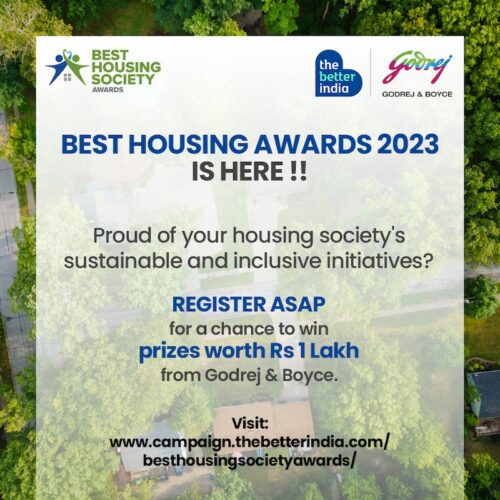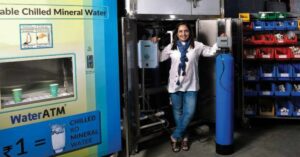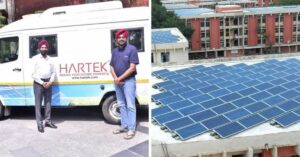10 Awesome Housing Societies Show How to Save the Environment While Saving Money
How can a residential society with multiple buildings reduce electricity and water bills while making compost from waste? Here are some innovative ideas from around India.
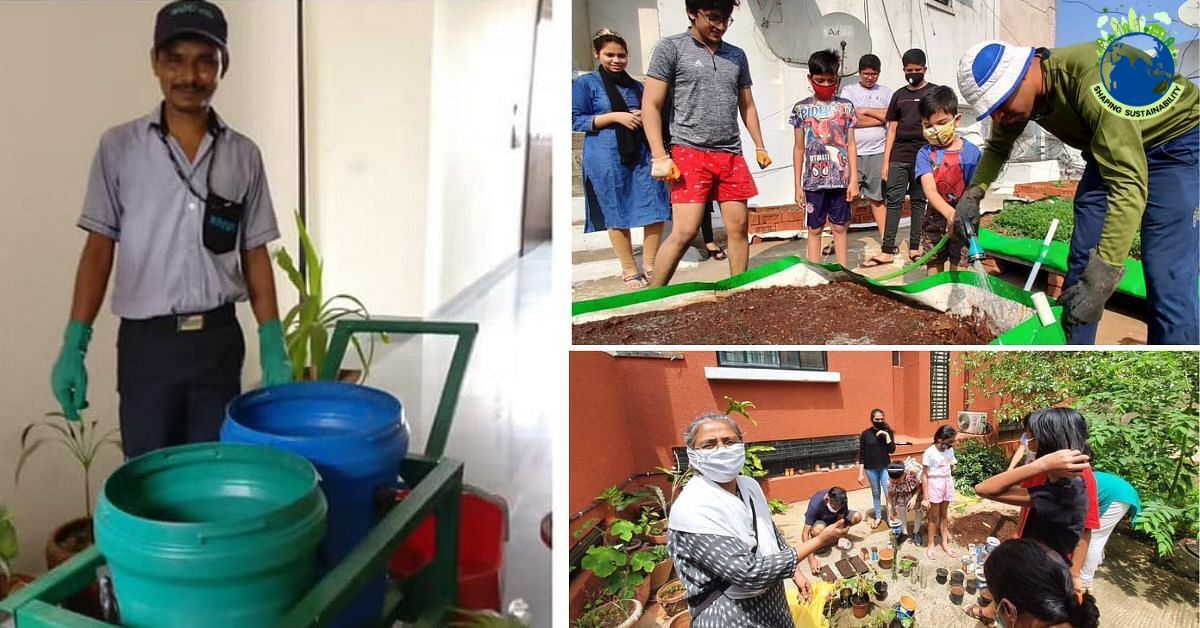
This article is part of a deep dive to celebrate Environment Day by highlighting individual and community action that leads to large scale impact on the planet. ItStartsWithMe is the second chapter of ‘Shaping Sustainability’, an exclusive series by The Better India, to give our readers an in-depth understanding of how Indians are making sustainability a priority in all walks of life. Find more stories from the series here
Change begins at home. And in many Indian cities, for a large number of us, home is an entire society. So naturally, the biggest pivot to sustainability comes when societies come together to implement plans that benefit everyone, help preserve the environment, and also reduce costs.
This Environment Day, we celebrate the efforts of such societies.
1. SJR Redwoods, Bengaluru
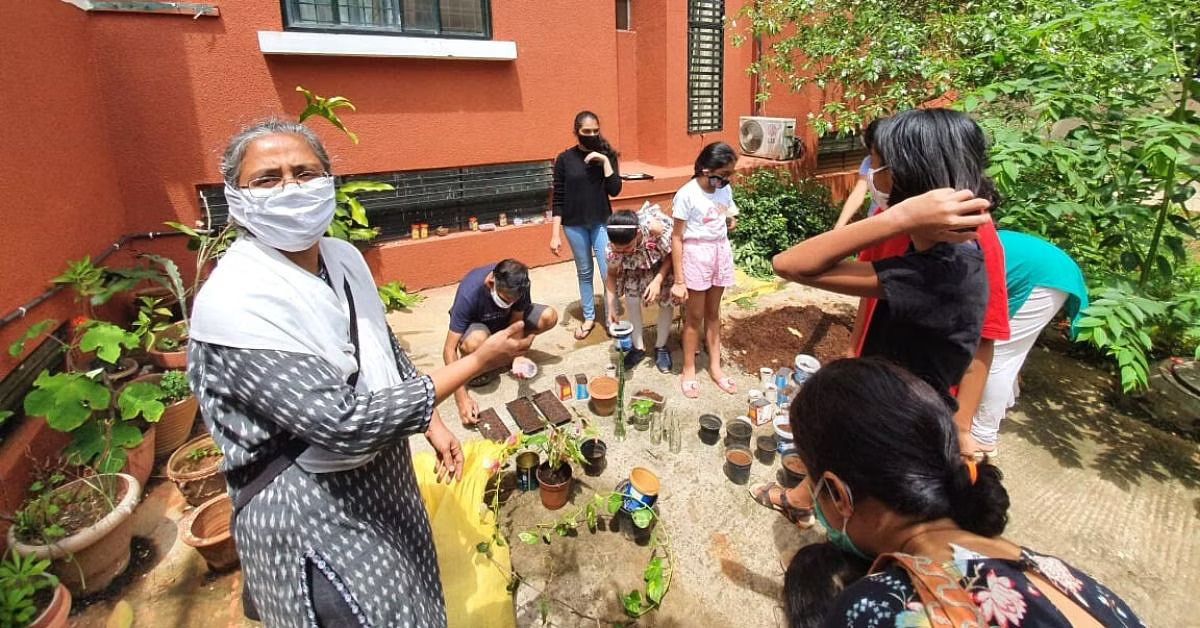
The 152-house complex created a food forest in the middle of their 2-acre common land. Residents can now pluck herbs, stroll among greenery and breathe clean air.
The society also collects its leaf litter and produces compost from it. This, they say, has helped them prevent six tonnes of garden waste from entering the landfill.
Read how they did this, here.
2. Emgee Greens Society, Mumbai
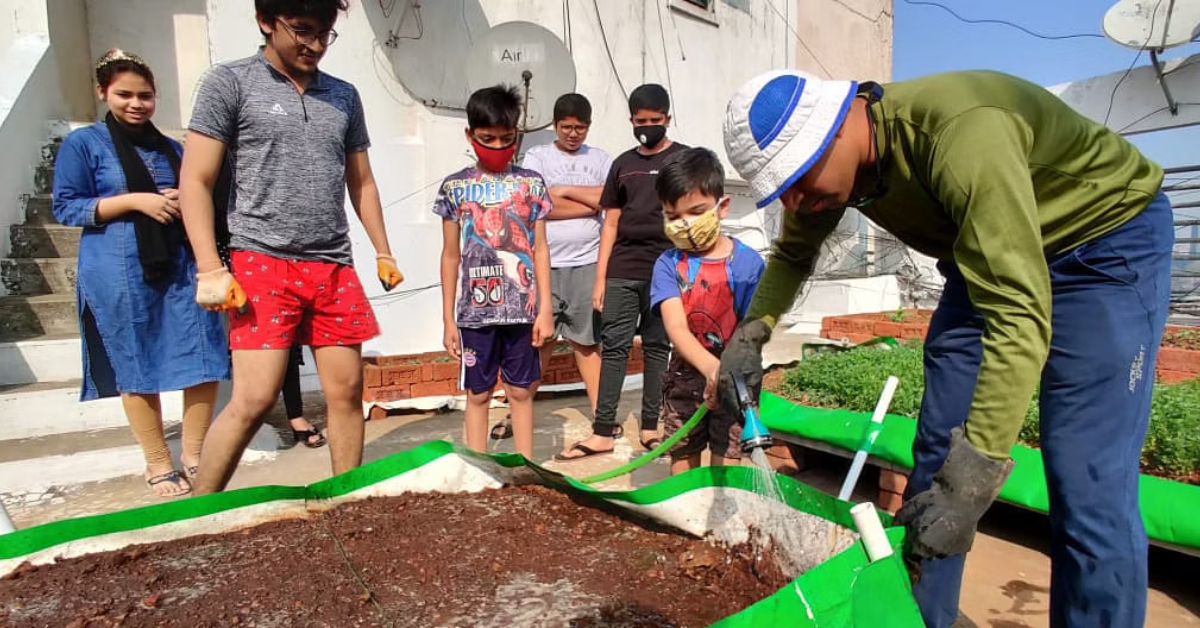
The residents collect the society’s garbage in the building’s backyard. They then turn it into fertiliser through the aerobic composting method. What is amazing is that they haven’t had a visit from the municipality for two years now, as there is no garbage!
The zero garbage society also harvests 90 kg of veggies in a month from their terrace. This includes spinach, fenugreek, aubergines, chillies and more.
Read how they did this, here.
3. MSR-Olive Co-Op Housing Society Ltd, Pune
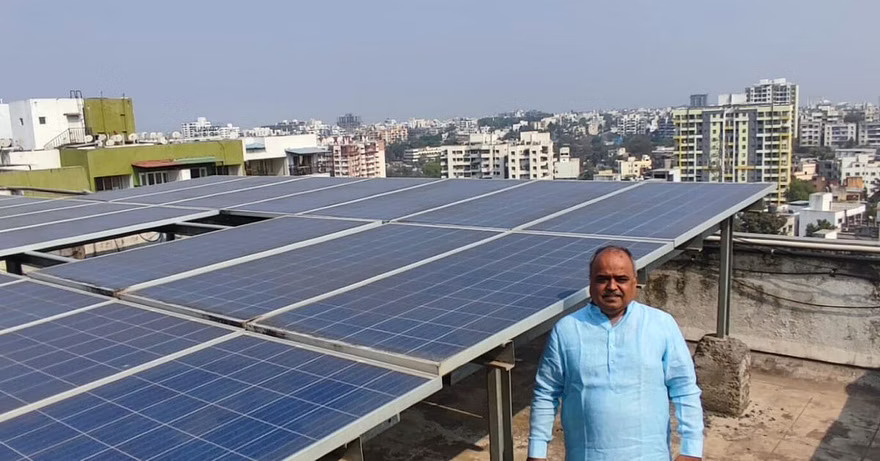
In 2016, the 216‐flat housing society installed an 80 kW solar panel on their terrace, which generates 70,0000 kWh of electricity per year.
Though the initial installation costs were Rs 30 lakh, the panels have reduced their electricity bills to Rs 4,000 per month from Rs 1 lakh per month, saving them Rs 10 Lakh a year and more than paying back the investment in just five years.
Read how they did this, here.
4. Orchid Petals, Gurugram
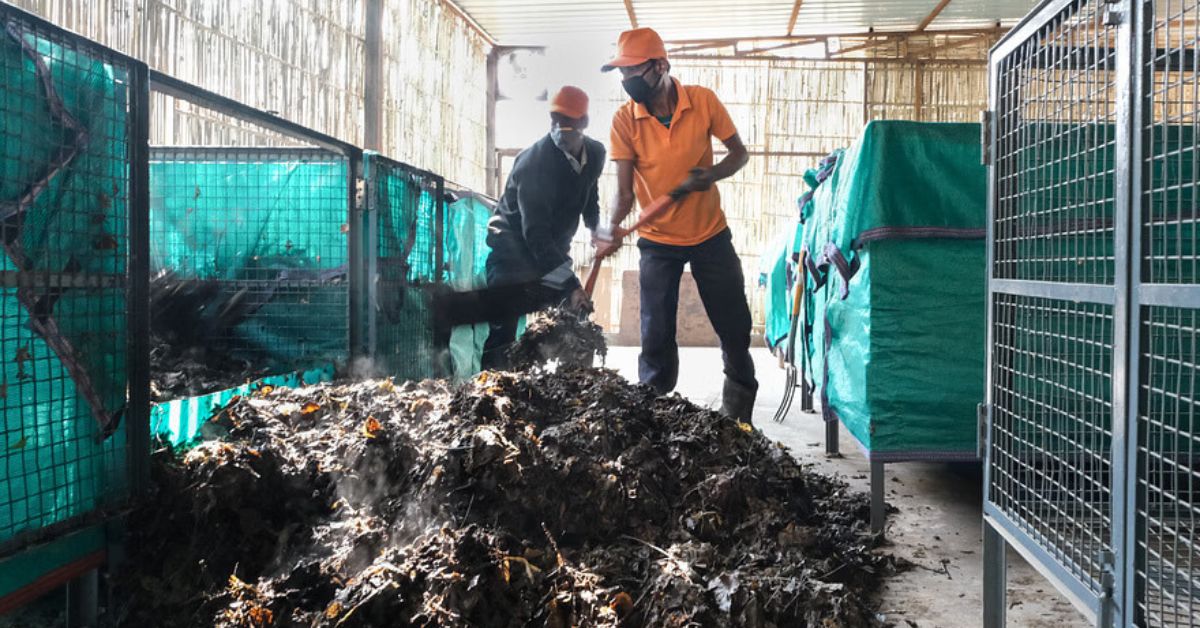
The 6000 residents of Orchid Petals generate 1,900 kg of waste every day. With such massive waste produced, sorting and sifting it was proving to be an enormous challenge for the municipal authorities. So the society decided to do something about it, and amazingly, they produced results in just seven months.
Today, they segregate 95 per cent of waste at the source.
Three bins are kept, one each for wet waste, dry waste, and domestic hazardous objects.
The wet waste is transferred to an on-site composting unit and used in the garden. The dry is recycled as much as possible, and the rest the municipality handles.
Read how they did this, here.
5. Palash Co-Operative Housing Society, Pune
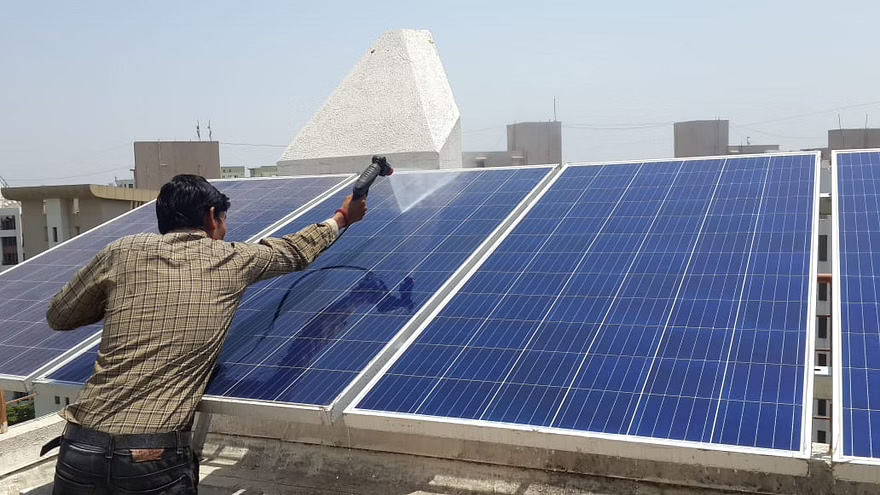
In 2012, the society installed twelve windmills to supplement their power supply, along with 66 KW capacity in solar panels. Along with this, they have resorted to other green measures as well.
The buildings in the complex have been built with fly ash bricks which keep their rooms cooler, eliminating the need for ACs.
All the 295 flats have installed aerators in their taps. These cumulatively save as much as 35,000 to 60,000 litres of water every day.
A true example of a society that does everything.
Read how they did this, here.
6. Matoshree Pearl, Mumbai
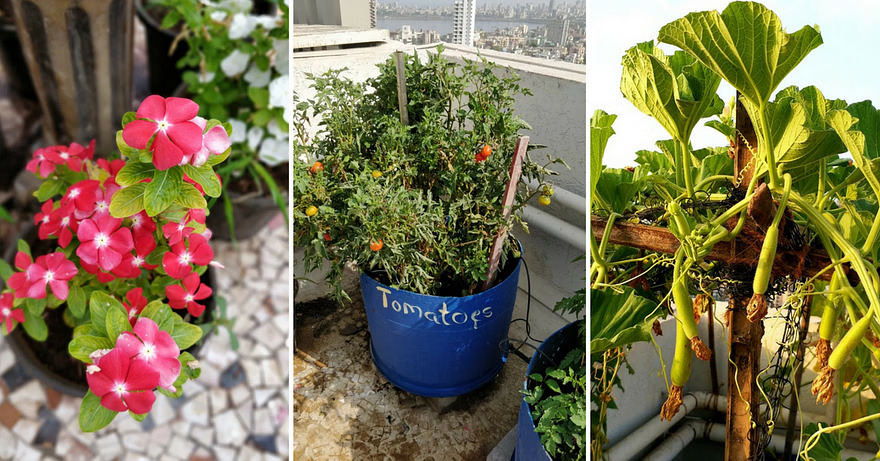
The society follows a self-sustaining waste management programme that recycles kitchen waste into organic compost.
They have also installed LEDs to conserve energy and this has been saving them Rs 40,000 per month in electricity bills.
Through their Go Green Campaign launched in 2017, the society has managed to produce 60-70 kg of compost every month from the 700-800 kg of kitchen waste.
Read how they did this, here.
7. Sealine Housing Society, Mumbai
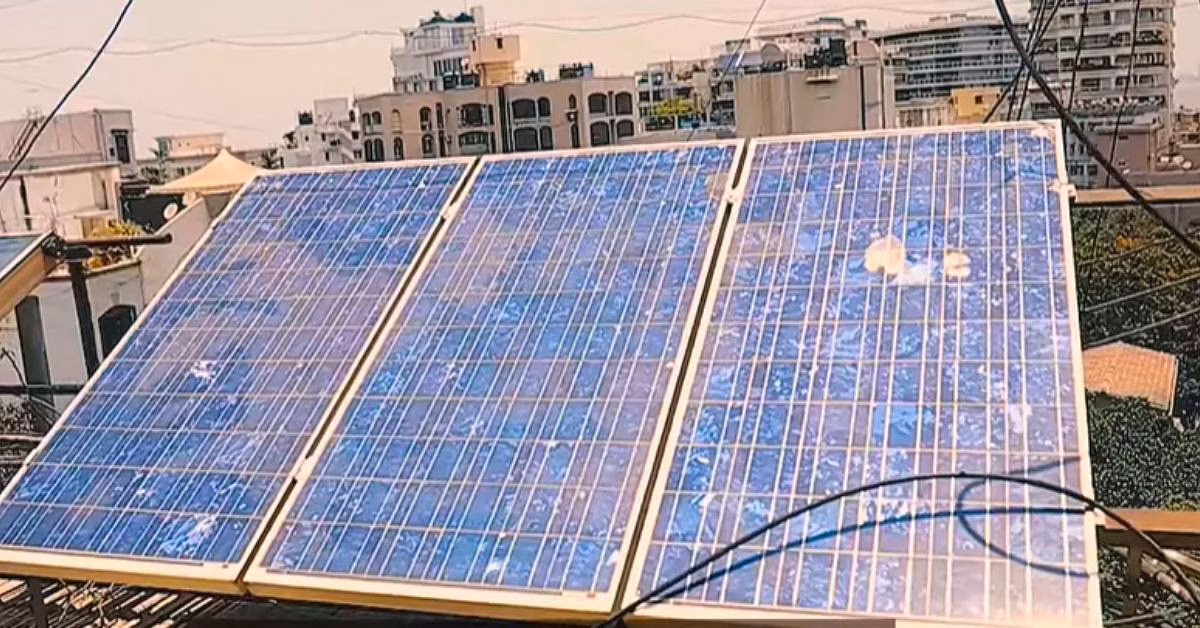
The society has invested in a harvesting facility that cost them Rs 7 lakh, solar panels and windmills that cost them Rs 13 lakh and a composting pit for Rs 1 lakh.
Through solar panels and windmills, they managed to cut their monthly electricity bills by 50 per cent.
Through the rainwater harvesting system, they save a minimum of 2,00,000 litres of water.
Read how they did this, here.
8. JRN colony, Vizag
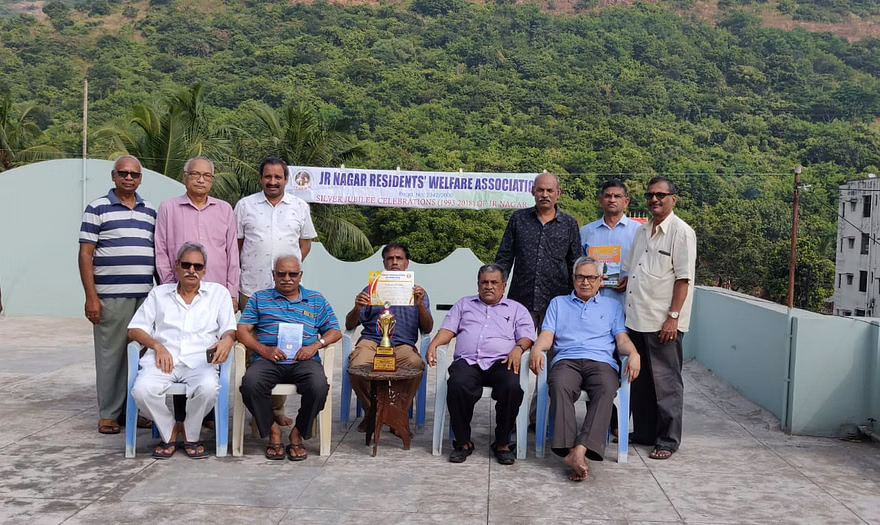
The residents dug pits after identifying water accumulation points in the colony. The 15 pits constructed since 2010 have helped them conserve millions of litres of rainwater.
“We have not purchased a single drop of drinking water in the last 27 years. Our 15 pits of roadside and individual rainwater harvesting cater to the water needs of 1,500 residents of Jagannadharaju Nagar (JRN) Colony,” says K S R Murthy proudly.
Read how they did this, here.
9. Maa Brindavan, Bengaluru
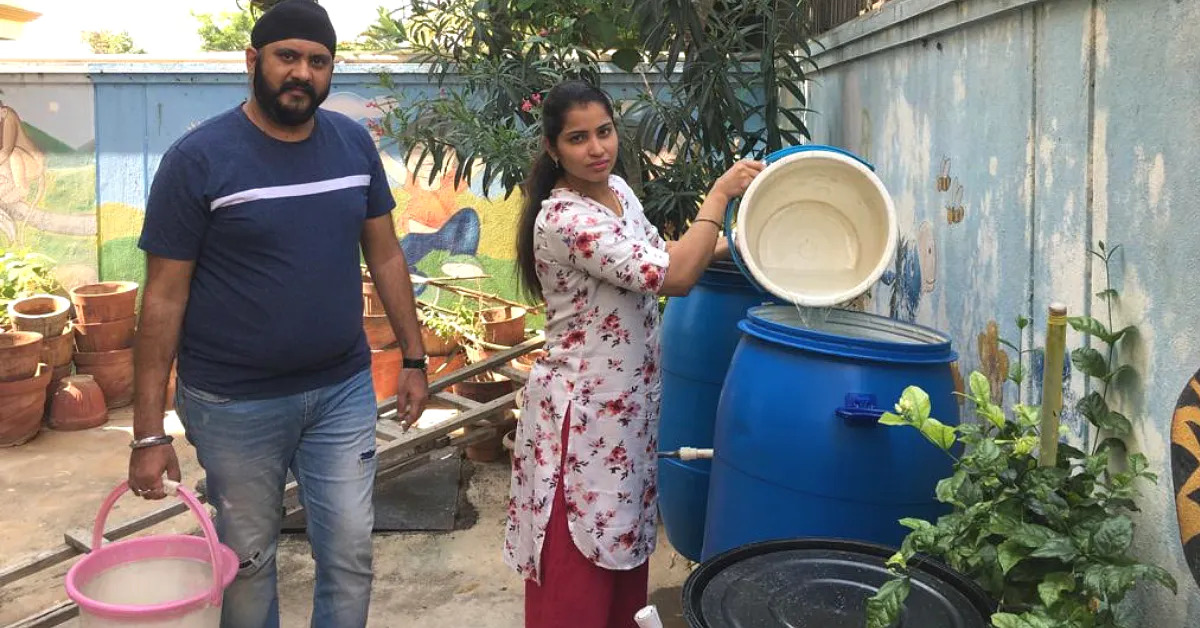
The apartments, like many others, would use RO water purifiers, which generated a lot of wastewater. They came up with the idea that this wastewater could be used for activities like washing cars and gardening.
On average, the apartments generate 500 litres of RO reject water every day. This is now being reutilised, instead of going down the drain. In so doing, the society is also saving around Rs 1,800 per month in water bills.
Read how they did this, here.
10. Sabari Terrace Complex, Sholinganallur, Chennai
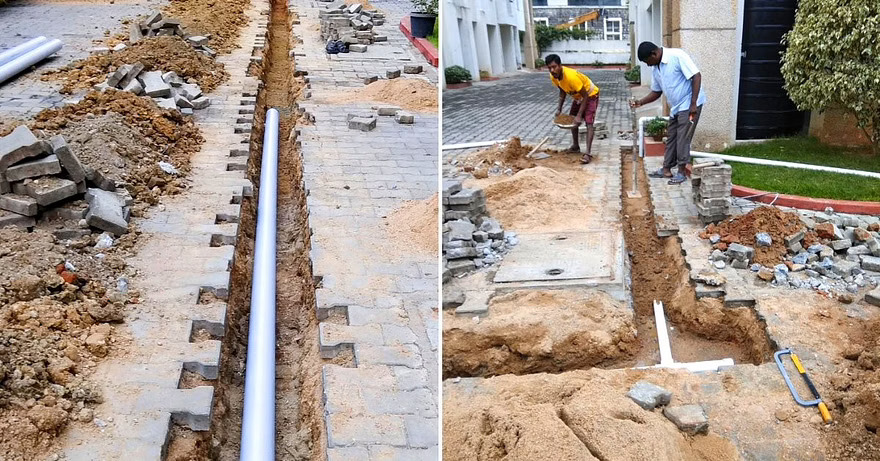
In an attempt to harvest rainwater collected on their terraces, the residents rerouted all the accessible terrace tops for the purpose. Spread across a pipeline network of about 1,500 ft, the layout connects all the terraces to two tanks that have a 3,000-litre capacity each.
Following the first showers from October 29 to 31 in 2018, the 1,00,000 litre sump in their compound filled up completely!
Read how they did this, here.
(Edited by Vinayak Hegde)
If you found our stories insightful, informative, or even just enjoyable, we invite you to consider making a voluntary payment to support the work we do at The Better India. Your contribution helps us continue producing quality content that educates, inspires, and drives positive change.
Choose one of the payment options below for your contribution-
By paying for the stories you value, you directly contribute to sustaining our efforts focused on making a difference in the world. Together, let’s ensure that impactful stories continue to be told and shared, enriching lives and communities alike.
Thank you for your support. Here are some frequently asked questions you might find helpful to know why you are contributing?


This story made me
-
97
-
121
-
89
-
167



